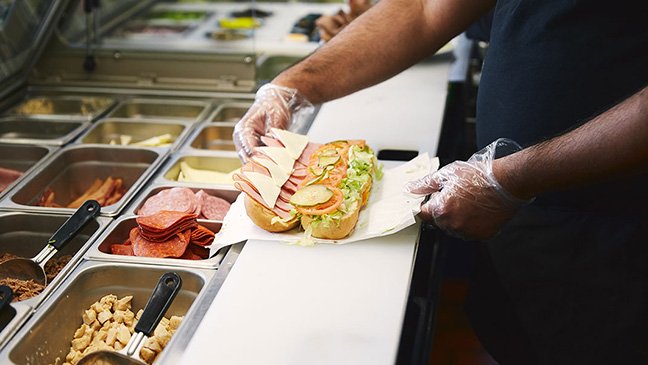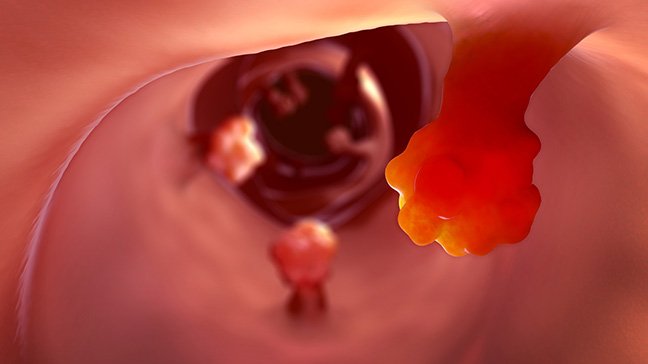- Diseases
- Acoustic Neuroma (16)
- Adrenal Gland Tumor (24)
- Anal Cancer (70)
- Anemia (2)
- Appendix Cancer (18)
- Bile Duct Cancer (26)
- Bladder Cancer (74)
- Brain Metastases (28)
- Brain Tumor (234)
- Breast Cancer (728)
- Breast Implant-Associated Anaplastic Large Cell Lymphoma (2)
- Cancer of Unknown Primary (4)
- Carcinoid Tumor (8)
- Cervical Cancer (164)
- Colon Cancer (168)
- Colorectal Cancer (118)
- Endocrine Tumor (4)
- Esophageal Cancer (44)
- Eye Cancer (36)
- Fallopian Tube Cancer (8)
- Germ Cell Tumor (4)
- Gestational Trophoblastic Disease (2)
- Head and Neck Cancer (14)
- Kidney Cancer (130)
- Leukemia (342)
- Liver Cancer (50)
- Lung Cancer (286)
- Lymphoma (278)
- Mesothelioma (14)
- Metastasis (30)
- Multiple Myeloma (100)
- Myelodysplastic Syndrome (60)
- Myeloproliferative Neoplasm (6)
- Neuroendocrine Tumors (16)
- Oral Cancer (102)
- Ovarian Cancer (178)
- Pancreatic Cancer (162)
- Parathyroid Disease (2)
- Penile Cancer (14)
- Pituitary Tumor (6)
- Prostate Cancer (150)
- Rectal Cancer (58)
- Renal Medullary Carcinoma (6)
- Salivary Gland Cancer (14)
- Sarcoma (238)
- Skin Cancer (302)
- Skull Base Tumors (56)
- Spinal Tumor (12)
- Stomach Cancer (66)
- Testicular Cancer (28)
- Throat Cancer (92)
- Thymoma (6)
- Thyroid Cancer (100)
- Tonsil Cancer (30)
- Uterine Cancer (86)
- Vaginal Cancer (18)
- Vulvar Cancer (22)
- Cancer Topic
- Adolescent and Young Adult Cancer Issues (22)
- Advance Care Planning (12)
- Biostatistics (2)
- Blood Donation (18)
- Bone Health (8)
- COVID-19 (360)
- Cancer Recurrence (120)
- Childhood Cancer Issues (120)
- Clinical Trials (628)
- Complementary Integrative Medicine (22)
- Cytogenetics (2)
- DNA Methylation (4)
- Diagnosis (240)
- Epigenetics (6)
- Fertility (62)
- Follow-up Guidelines (2)
- Health Disparities (14)
- Hereditary Cancer Syndromes (128)
- Immunology (18)
- Li-Fraumeni Syndrome (8)
- Mental Health (122)
- Molecular Diagnostics (8)
- Pain Management (62)
- Palliative Care (8)
- Pathology (10)
- Physical Therapy (18)
- Pregnancy (18)
- Prevention (940)
- Research (390)
- Second Opinion (78)
- Sexuality (16)
- Side Effects (616)
- Sleep Disorders (10)
- Stem Cell Transplantation Cellular Therapy (216)
- Support (408)
- Survivorship (330)
- Symptoms (182)
- Treatment (1794)
H. pylori and your stomach cancer risk
4 minute read | Published April 23, 2021
Medically Reviewed | Last reviewed by an MD Anderson Cancer Center medical professional on April 23, 2021
Most stomach cancers are caused by bacteria called helicobacter pylori or H. pylori. Having H. pylori doesn’t mean you’ll get stomach cancer, but it does increase your risk.
We talked to Patrick Lynch, M.D., a gastroenterologist in Internal Medicine, about H. pylori and other stomach cancer risk factors, how to recognize symptoms and what you can do to reduce your chances of developing this disease.
What’s the link between H. pylori and stomach cancer?
H. pylori is a common bacterium. There are multiple strains, and different strains have different effects on the stomach. Most people never experience side effects or illness.
Most stomach ulcers are caused by H. pylori. Certain strains can also raise your risk for stomach cancer.
“The whole process of stomach cancer risk associated with H. pylori is one of inflammation,” says Lynch. “With H. pylori, you have an infection, which causes inflammation, then healing, then more inflammation. Over time, this cycle of constant cell regeneration can result in mistakes that lead to cancer.”
How do you know if you have H. pylori?
Symptoms of H. pylori infection include chronic dyspepsia – or indigestion – that may be accompanied by abdominal pain, bloating and the urge to burp. Lynch describes it as a “sour stomach.”
Dyspepsia should not be confused with heartburn, which feels like acid and food are coming back up from the stomach into the esophagus. This causes discomfort or pain in the chest.
“Someone with H. pylori is actually less likely to have acid reflux and heartburn, because H. pylori reduces the stomach’s ability to produce acid so it can survive,” says Lynch. “Someone with heartburn likely doesn’t have an H. pylori infection.”
It’s important to pay attention to your symptoms, where they are occurring and what they feel like, so your doctor can make a proper diagnosis. H. pylori infection can be treated with a combination of antibiotics and other drugs.
“Indigestion that is severe enough or has gone on long enough to prompt a doctor’s visit may lead to somebody being evaluated and can sometimes be the means for reducing risk of stomach cancer by identifying and treating H. pylori,” says Lynch.
Know the symptoms of stomach cancer
Stomach cancer is often found in later stages, because symptoms don’t appear until the disease is advanced.
“There are no early signs of stomach cancer,” says Lynch. “If a patient is really paying attention to their body and sees their doctor as soon as symptoms do appear, there is a better chance of successfully treating the disease,” says Lynch.
Symptoms of stomach cancer include:
- Abdominal pain or discomfort
- Loss of appetite
- Heartburn, indigestion or ulcer-type symptoms
- Nausea and vomiting
- Bloating or swelling in the abdomen
- Diarrhea or constipation
- Feeling full after eating small amounts of food
- Bloody or black stools
Having one or more of these symptoms does not mean you have cancer. However, if you notice any of them for more than two weeks, talk to your doctor. The earlier cancer is detected, the easier it is to treat.
Steps to reduce stomach cancer risk
The healthy lifestyle choices that reduce your overall cancer risk will also reduce your risk of stomach cancer and a host of other diseases. These include:
Don't smoke. People who smoke are more likely than nonsmokers to develop stomach cancer. “If you’re talking about a lifestyle intervention that makes a difference, stopping smoking is important,” says Lynch.
Maintain a healthy weight. Being overweight or obese raises the risk of at least 13 cancers, including cancer in the area where the esophagus connects with the stomach. This is likely due to the chronic inflammation caused by excess body fat.
Limit alcohol. Avoid alcohol for cancer prevention. If you choose to drink, limit yourself to no more than one drink per day if you are a woman, and two drinks per day if you are a man. The risk for stomach cancer begins to go up at three or more drinks per day.
Watch your diet. A diet heavy in foods preserved through pickling or salting or that contain nitrates can increase your risk for stomach cancer. Eating foods that have been stored or prepared in unsanitary conditions or have not been properly refrigerated raises the risk of H. pylori infection and stomach cancer.
Talk to your family about their cancer history. Some hereditary cancer syndromes can increase your risk for stomach cancer. If you are concerned, talk to your doctor. “People who have a family history of stomach cancer or the genes associated with them should undergo endoscopy, because they’re at higher risk,” says Lynch. “Even though these conditions are fairly rare, there are situations where you could really pinpoint risk to an individual.”
Request an appointment at MD Anderson online or by calling 1-888-971-2145.

The whole process of stomach cancer risk associated with H. pylori is one of inflammation.
Patrick Lynch, M.D.
Physician





